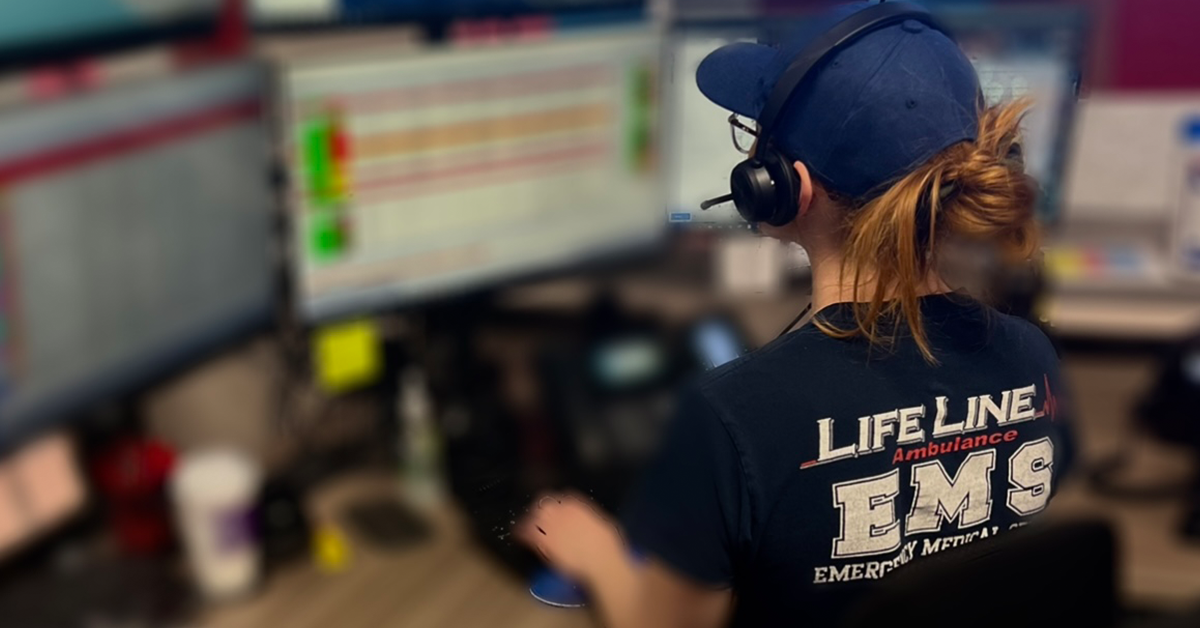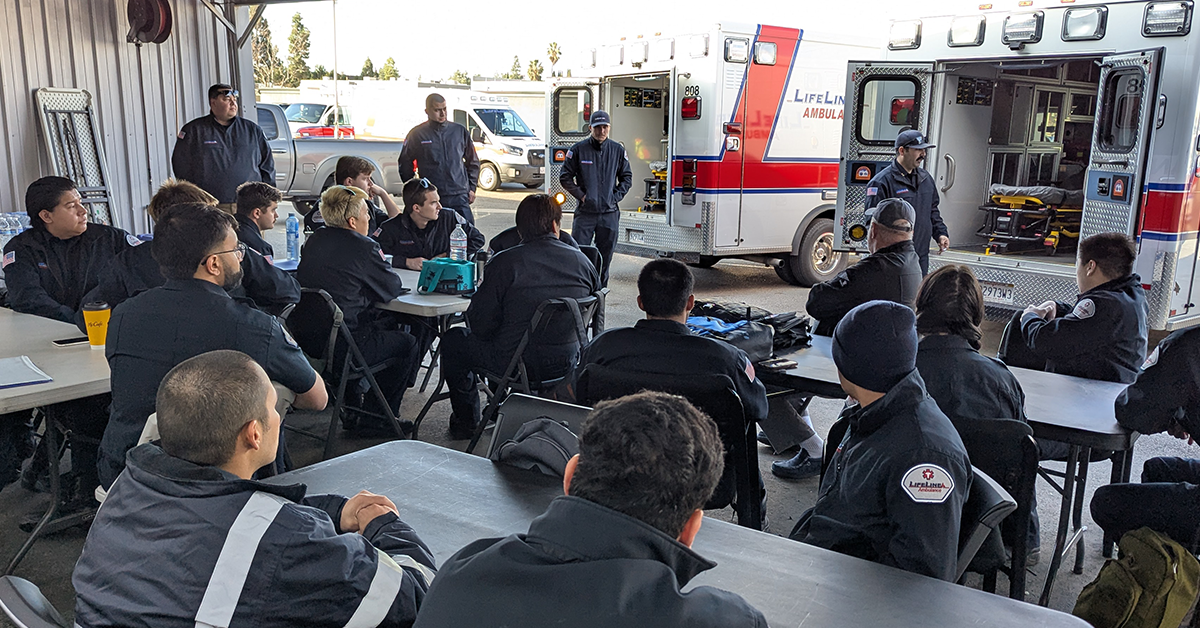A career in emergency medical services (EMS) is more than a job—it’s a calling. At LifeLine EMS, we recognize the dedication and drive it takes to succeed in this fast-paced field. That’s why we’ve created a structured career pathway designed to guide you from initial training to leadership roles. Whether you’re just starting as an Emergency Medical Technician (EMT) or seeking to advance into management or specialized positions, LifeLine EMS offers the training, mentorship, and support you need to grow your career.
Step 1: Starting with Strong Foundations—Training Programs
The first step to success at LifeLine EMS begins with top-tier training.
Initial Training for New EMTs
We provide new hires with comprehensive onboarding that covers:
- Basic Life Support (BLS) Certification: Ensuring EMTs are prepared to handle medical emergencies.
- CPR and First Aid Training: Equipping staff with lifesaving techniques.
- Scenario-Based Learning: Simulating real-world situations to build confidence and competence.
For those without prior EMS experience, we assist in identifying accredited EMT certification programs in Los Angeles and Southern California, helping candidates jumpstart their careers.
Continuing Education Opportunities
Even after onboarding, learning never stops. LifeLine EMS offers:
- Ongoing Medical Skills Workshops: Focused on advanced airway management, trauma response, and pediatric care.
- State-Mandated CEUs (Continuing Education Units): To maintain certification compliance.
- Partnerships with Training Institutions: Allowing employees to pursue advanced certifications like Paramedic or RN while working.
Step 2: Building Confidence—Field Experience and Mentorship
The transition from training to fieldwork can be daunting, but at LifeLine EMS, you’re never alone.
Mentorship Programs
We pair new EMTs with experienced mentors who:
- Provide hands-on guidance during ride-alongs and shifts.
- Share insights on managing high-pressure situations.
- Offer advice on professional development and career advancement.
Collaborative Team Environment
Our team-oriented culture encourages open communication, ensuring EMTs feel supported both in the field and in the workplace.
Step 3: Advancing Your Career—Specialized Certifications and Promotions
Pathways to Specialization
LifeLine EMS encourages EMTs to explore specialized roles, including:
- Paramedics: With advanced life support training, paramedics manage critical cases and perform medical procedures.
- Critical Care Transport Technicians: Focused on transferring high-risk patients between facilities.
- Community Paramedicine Providers: Offering preventive care and chronic disease management.
Tuition Assistance Programs
To ease the transition into advanced roles, LifeLine EMS provides tuition reimbursement and flexible schedules for employees pursuing certifications.
Promotions and Leadership Opportunities
We recognize hard work and reward ambition with opportunities to step into leadership roles, including:
- Field Training Officers (FTOs): Mentoring and evaluating new EMTs.
- Supervisors: Managing teams and overseeing daily operations.
- Operations Managers: Leading larger teams and coordinating logistics.
Many of our current leaders began as EMTs and worked their way up through these ranks—proof that LifeLine EMS is committed to promoting from within.
Step 4: Stepping into Leadership—Management Training Programs
At LifeLine EMS, leadership isn’t just about rank—it’s about inspiring others and driving excellence.
Leadership Development Programs
Our programs include:
- Workshops on Team Management: Teaching effective communication, conflict resolution, and decision-making.
- Project Management Training: Equipping future leaders with tools to oversee complex operations.
- Executive Coaching: One-on-one mentorship for employees preparing for senior roles.
Leading Community Engagement Initiatives
LifeLine EMS leaders play a vital role in local outreach programs, such as:
- Health and Safety Workshops: Educating schools and businesses.
- Disaster Preparedness Programs: Partnering with first responders for emergency drills.
- Charity and Fundraising Events: Supporting causes in Los Angeles and Southern California.
Leadership at LifeLine EMS extends beyond operations—it’s about making a lasting impact on the community.
Why Choose LifeLine EMS for Career Growth?
1. Clear Career Pathways
We offer structured programs for EMTs to transition into advanced roles, ensuring clarity and direction for career advancement.
2. Flexible Scheduling and Support
Recognizing the need for work-life balance, we provide:
- Adjustable shifts to accommodate school schedules.
- Paid time off and wellness programs.
3. Commitment to Employee Development
From tuition assistance to certifications, we prioritize learning and skill development to help employees succeed.
4. A Culture of Inclusion and Respect
LifeLine EMS is proud to foster an inclusive work environment that celebrates diversity and values every team member.
How to Get Started at LifeLine EMS
Ready to begin your journey? Follow these steps to join our team:
- Apply Online: Visit the Careers Page on our website to submit your resume.
- Prepare for Interviews: Highlight skills like teamwork, problem-solving, and communication.
- Complete Assessments: Show proficiency in EMS fundamentals through tests and evaluations.
- Onboard and Train: Start with orientation and field training to build confidence.
- Plan Your Path: Work with mentors and supervisors to map out your career goals.
Why Southern California is the Ideal Place to Build Your EMS Career
Los Angeles and Southern California are prime locations for EMS careers due to:
- High Demand: Dense populations and heavy traffic mean consistent calls for EMS support.
- Diverse Cases: Urban areas, coastal regions, and rural communities present varied challenges, building well-rounded experience.
- Opportunities for Growth: Access to top healthcare systems and training programs accelerates career advancement.
Keep Reading
Want more? Here are some other blog posts you might be interested in.
In the high-stakes world of emergency medical services, clear and effective communication can mean the difference between life and death. EMS professionals...
Emergency Medical Services is an ever-evolving field that requires constant learning and adaptation. With medical advancements, technological innovations, and increasing public health...
Emergency Medical Services s a high-stress, physically demanding profession that requires dedication, quick decision-making, and resilience. While the rewards of saving lives...






